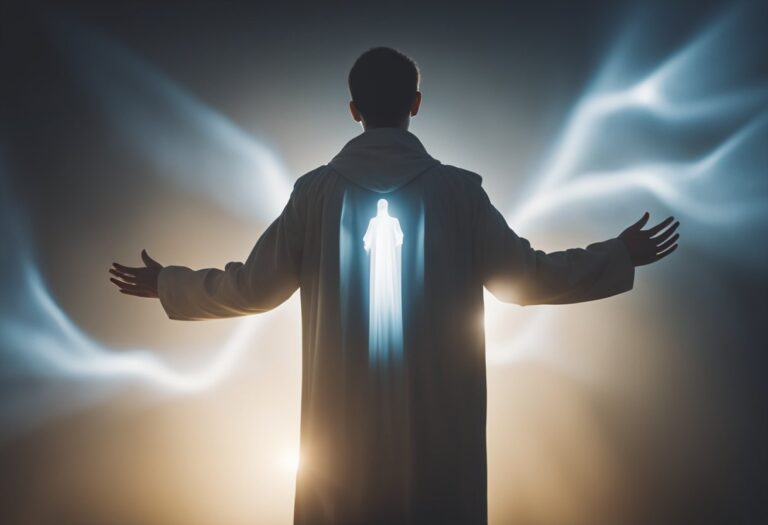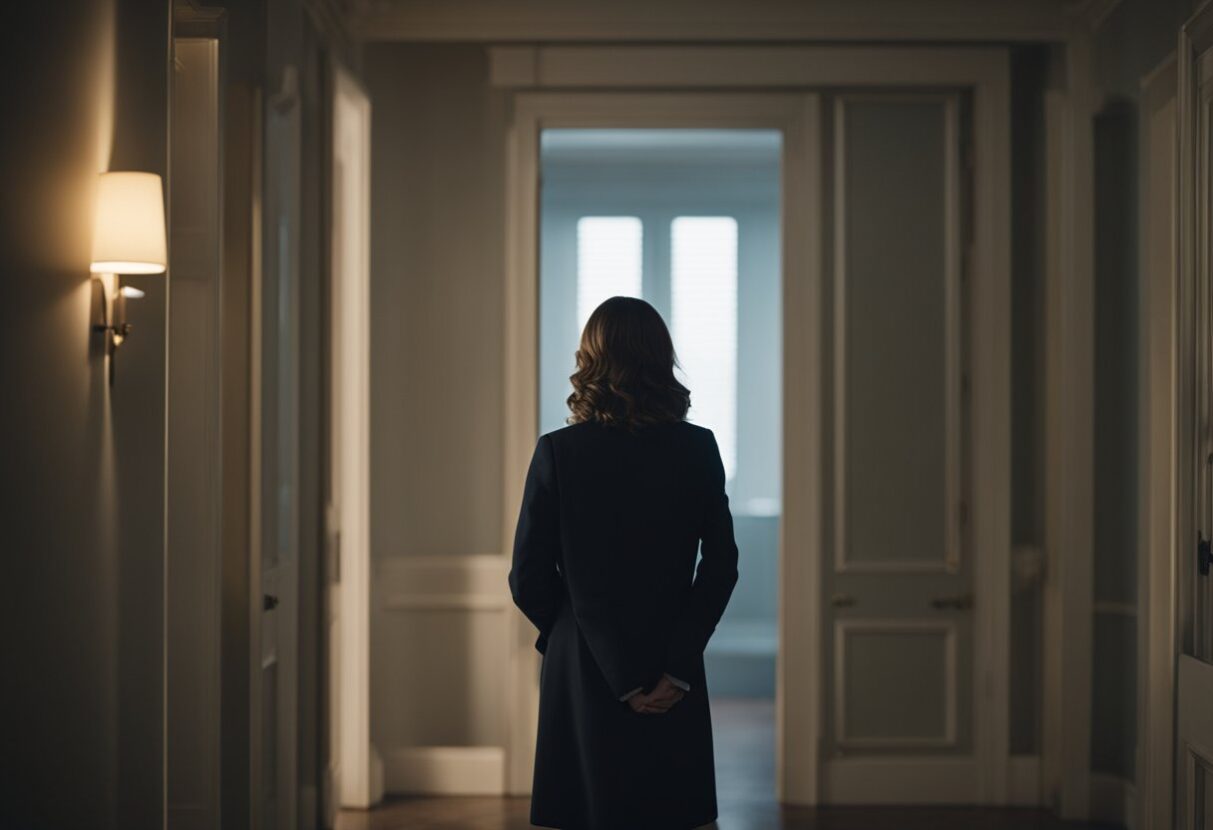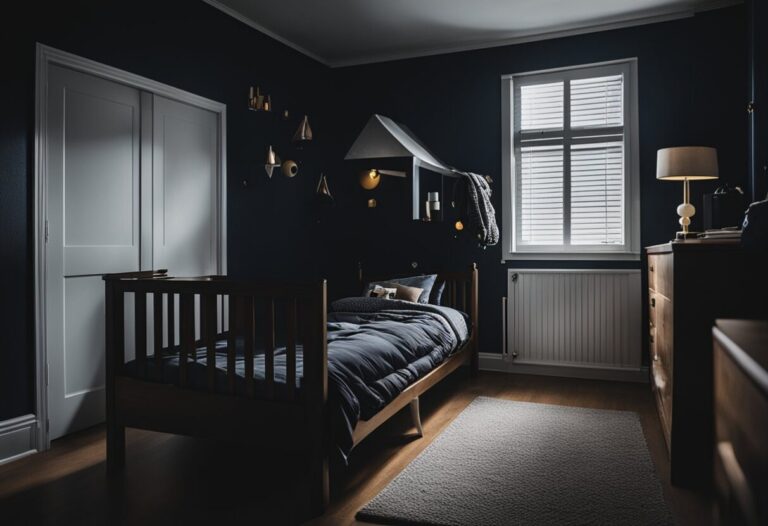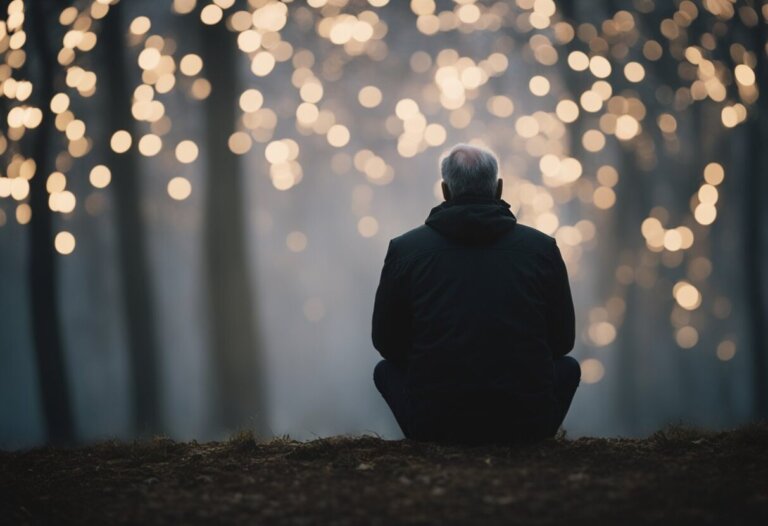Dreaming About Dead Bodies: Meanings And Interpretations
Understanding Dreams About Dead Bodies
Dreams about dead bodies can be unsettling and confusing. They are symbolic and can have multiple interpretations depending on the context and the culture. Dead bodies in dreams are often associated with change, transformation, and renewal.
The subconscious mind is responsible for processing emotions and experiences that we encounter in our waking life. Dreams are a way for the subconscious to communicate with the conscious mind, which can help us better understand our emotions and thoughts. When we dream about dead bodies, it is often a reflection of our emotional state.
Dream interpretation is a complex field that involves analysing the symbolic meaning of different elements in a dream. Dead bodies in dreams can represent different things depending on the context. For example, dreaming about a dead body may symbolize the end of a relationship, a job, or a certain way of thinking. It can also represent the need to let go of something or someone in your life.
In some cultures, dreaming about dead bodies is considered a good omen, while in others, it is seen as a bad sign. For example, in Hinduism, dreaming about a dead body is believed to represent the end of something negative and the beginning of something positive. In contrast, in Western culture, dreaming about dead bodies is often associated with fear and anxiety.
It is essential to understand that dreams are subjective and personal. The interpretation of a dream can vary depending on the individual’s experiences, beliefs, and cultural background. Therefore, it is important to approach dream interpretation with an open mind and seek guidance from a professional if needed.
Psychological Interpretation of Death in Dreams
Dreams about death can be distressing and cause a range of emotions. From a psychological standpoint, these dreams can reflect unresolved emotions, trauma, or a fear of loss. Death in dreams may serve as a metaphor for the end of a relationship, job, or certain aspects of oneself.
Emotional State and Dream Content
The emotional state of the dreamer and the content of the dream can provide insight into the meaning of the dream. Negative emotions such as fear, overwhelm, and suppressed emotion can be reflected in dreams about dead bodies. Positive emotions such as happiness and release can also be present.
Symbolism of Dead Bodies in Dreams
The symbolism of dead bodies in dreams can vary depending on the context of the dream. Dead bodies can represent transformation, new beginnings, and the end of a chapter. They can also symbolize loss, regret, and negative feelings.
Common Interpretations of Dead Bodies
One common interpretation of seeing dead bodies in dreams is that it represents the end of something, be it a relationship or a job. It can also signify the end of a certain chapter in your life or a traumatic experience. Dreams about dead bodies can be an opportunity for introspection and self-reflection.
Dreams Reflecting Personal Relationships
Dreams about dead bodies can also reflect personal relationships. They can represent the loss of a loved one or the end of a romantic relationship. Dreams about dead bodies can also be a reflection of past experiences and nostalgia.
Influence of Past Experiences
Past experiences can influence dreams about dead bodies. Traumatic experiences, such as the death of a loved one, can cause these dreams to occur. Dreams about dead bodies can be a way for the subconscious to process and cope with these past experiences.
Dream Analyst Perspectives
Dream analysts such as Carl Jung believe that dreams about death and dead bodies can represent the transformation of the psyche. These dreams can be an opportunity for personal growth and self-discovery.
Health and Dream Imagery
Dreams about dead bodies can also be a reflection of health issues. They can represent the fear of illness or the need for transformation and change. Dreams about dead bodies can also be a reflection of the emotional state of the dreamer.
Dreams Indicating Change or Transformation
Dreams about dead bodies can indicate a need for change or transformation. They can represent the end of a chapter and the beginning of a new one. These dreams can be a positive sign, indicating that the dreamer is ready for new beginnings.
Addressing Fears and Anxieties
Dreams about dead bodies can also be a reflection of fears and anxieties. They can represent the fear of death or the fear of losing someone or something. These dreams can be an opportunity for the dreamer to address and overcome these fears and anxieties.
Cultural and Superstitious Beliefs
Cultural and superstitious beliefs can also influence dreams about dead bodies. In some cultures, dreams about dead bodies are believed to be a sign of bad luck or misfortune. In other cultures, dreams about dead bodies are believed to be a sign of good news.
Dreams About Crime and Punishment
Dreams about dead bodies can also be a reflection of guilt, justice, and crime. They can represent the need for justice and the fear of punishment. Dreams about dead bodies can also be a reflection of the subconscious mind processing feelings of guilt and regret.
Interpreting Water and Grave Imagery
Water and grave imagery can also be present in dreams about dead bodies. Water can represent the subconscious mind and the emotions that lie beneath the surface. Grave imagery can represent buried emotions and the need for release and transformation.
Dreams Involving Autopsy or Burial
Dreams about dead bodies can also involve autopsy or burial. These dreams can represent a need for closure and the need to let go of the past. Dreams about dead bodies can also be a reflection of the subconscious mind processing feelings of loss and grief.
Scenarios with Multiple Dead Bodies
Scenarios with multiple dead bodies can also occur in dreams. These dreams can represent overwhelming emotions and feelings of negativity. They can also represent a need for transformation and change.
In conclusion, dreams about dead bodies can be a reflection of personal experiences, emotions, and beliefs. Interpretation of these dreams requires an understanding of the context of the dream and the emotional state of the dreamer. Dreams about dead bodies can be an opportunity for personal growth, self-reflection, and transformation.
Practical Steps After Experiencing These Dreams
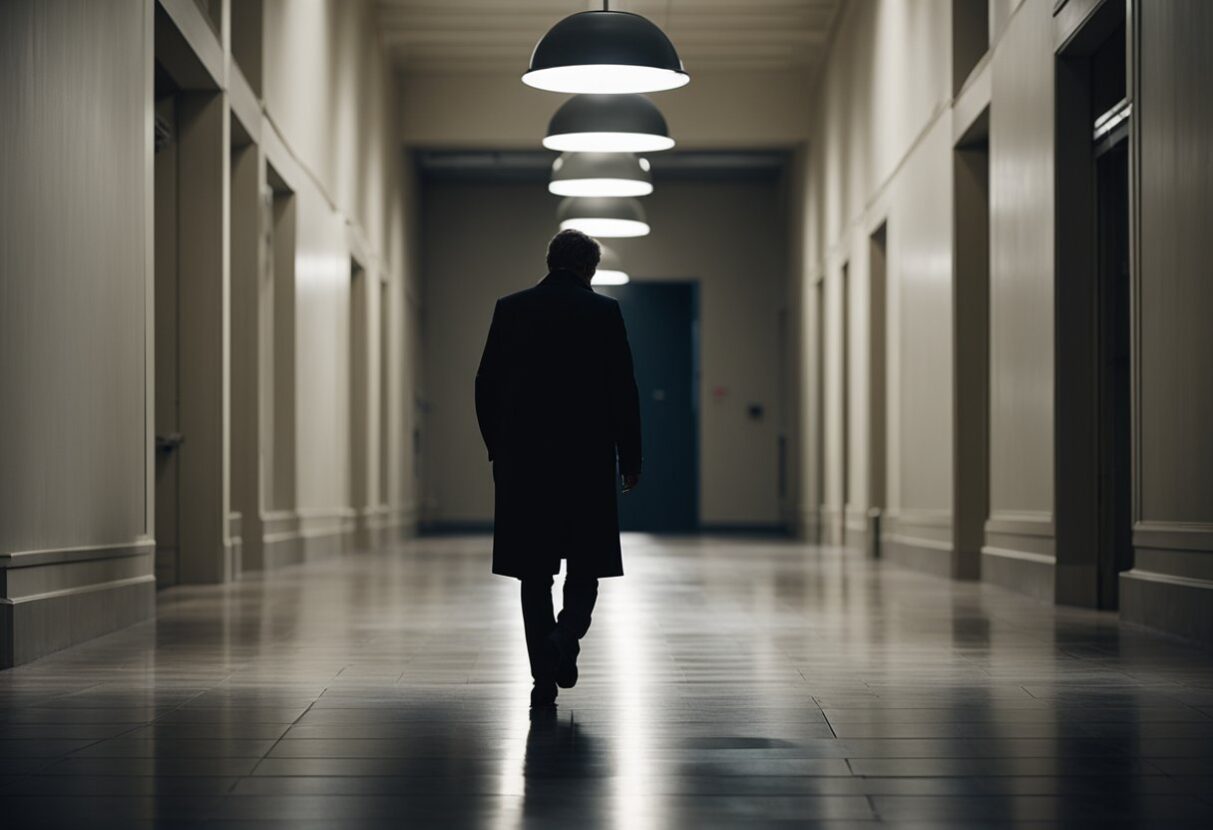
Dreams about dead bodies can be unsettling and may leave you feeling confused or overwhelmed. If you have recently experienced such a dream, there are practical steps you can take to help you understand its meaning and impact on your daily life.
Reflecting on the Dream’s Meaning
One of the first steps you can take after experiencing a dream about dead bodies is to reflect on its possible meanings. Dreams are often a reflection of your subconscious, and understanding their symbolism can help you gain insight into your emotions and thought patterns. Consider the details of the dream, such as the location, the people involved, and the emotions you felt. Reflecting on these details can help you identify possible interpretations.
Recording Dreams in a Journal
Recording your dreams in a journal can be an effective way to track patterns and identify recurring themes. Keeping a dream journal can also help you remember the details of your dreams more clearly, making it easier to reflect on their meaning. Consider recording your dreams immediately upon waking, as this can help you capture the details more accurately.
Seeking Professional Interpretation
If you are struggling to understand the meaning of your dream, it may be helpful to seek the assistance of a dream analyst or therapist. These professionals can help you explore the symbolism of your dream and provide valuable insights into your emotions and thought patterns.
Understanding the Impact on Daily Life
Dreams about dead bodies can have a significant impact on your daily life, causing changes in your emotional state or behaviour. It is important to recognise these changes and understand how they may be affecting your relationships, work, or other aspects of your life. By recognising the impact of your dreams, you can take practical steps to address any negative effects.
Using Dreams for Personal Growth
Dreams can be a powerful tool for personal growth and transformation. By reflecting on the symbolism of your dreams and understanding their impact on your daily life, you can gain insight into your emotions and thought patterns. This can help you identify areas where you may need to let go of old patterns or beliefs, and make positive changes in your life.
Confronting Emotions and Conflicts
Dreams about dead bodies can often be a reflection of unresolved emotions or conflicts. By confronting these emotions and conflicts, you can release any negative feelings and move towards a more positive emotional state. Consider talking to a trusted friend or therapist about your emotions, or engaging in activities that help you release stress and tension.
Recognising Signs of Stress or Trauma
Dreams about dead bodies can also be a sign of stress or trauma. If you are experiencing overwhelming emotions or are struggling to cope with the impact of your dreams, it may be helpful to seek professional help. A therapist can help you identify the underlying causes of your stress or trauma, and provide practical strategies for coping and healing.
In summary, dreams about dead bodies can be unsettling, but by taking practical steps to reflect on their meaning, record them in a journal, seek professional interpretation, and understand their impact on your daily life, you can gain valuable insights into your emotions and thought patterns. By using your dreams for personal growth and transformation, confronting unresolved emotions and conflicts, and recognising signs of stress or trauma, you can move towards a more positive emotional state and live a more fulfilling life.
Cultural Interpretations and Mythologies
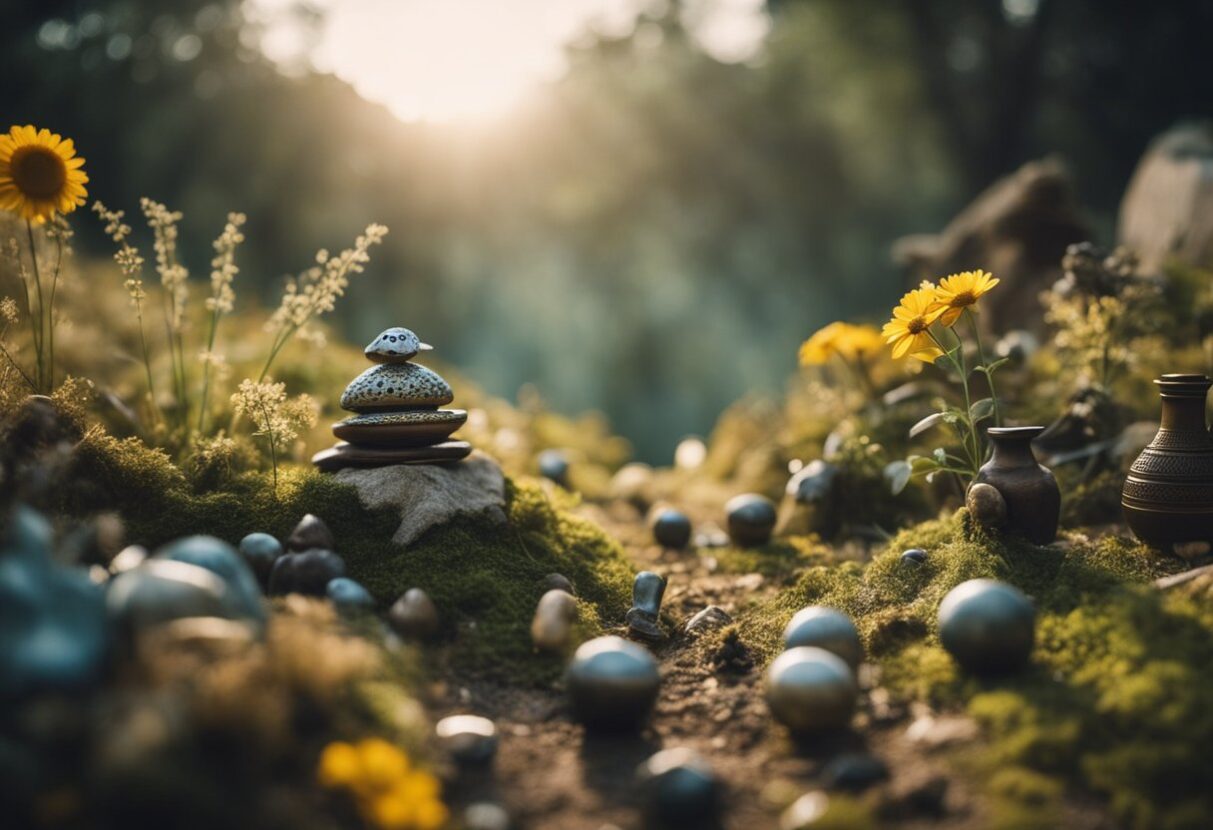
Dreams about dead bodies have been a source of fascination and fear for centuries. Different cultures have their own interpretations of what these dreams signify. In this section, we will explore some of the cultural beliefs, superstitions, and mythologies surrounding death in dreams.
Mythological Meanings of Death
In many cultures, death is seen as a transition from one life to another. In Greek mythology, death is personified by the figure of Thanatos, who is often depicted as a winged youth carrying a sword. In Hindu mythology, death is personified by the god Yama, who is responsible for guiding souls to the afterlife. In many African cultures, death is seen as a journey to the spirit world, where the deceased can continue to influence the lives of the living.
Superstitions Around Dead Bodies
Many cultures have superstitions about dead bodies and the rituals surrounding death. In some cultures, it is believed that if you dream about a dead body, it is a sign of good luck. In others, it is seen as a bad omen. In some cultures, it is believed that if you touch a dead body, you will become possessed by the spirit of the deceased. In others, it is believed that if you do not bury a dead body properly, the spirit of the deceased will haunt you.
Historical Context of Death in Dreams
Throughout history, dreams about death have been seen as a way for the subconscious mind to process the fear and anxiety surrounding mortality. In ancient Egypt, dreams about death were seen as a way for the soul to communicate with the gods. In medieval Europe, dreams about death were often interpreted as a warning of impending danger or illness. In modern psychology, dreams about death are seen as a way for the subconscious mind to explore the themes of loss and transformation.
Comparative Cultural Dream Analysis
When interpreting dreams about death, it is important to take into account the cultural context of the dreamer. Different cultures have different beliefs about death and the afterlife, and these beliefs can influence the interpretation of dreams. For example, in some cultures, dreams about death are seen as a way for the deceased to communicate with the living. In others, they are seen as a warning of impending danger or illness. By understanding the cultural context of the dreamer, we can gain a deeper understanding of the meaning of their dreams.
Navigating Emotional Responses to Dreams
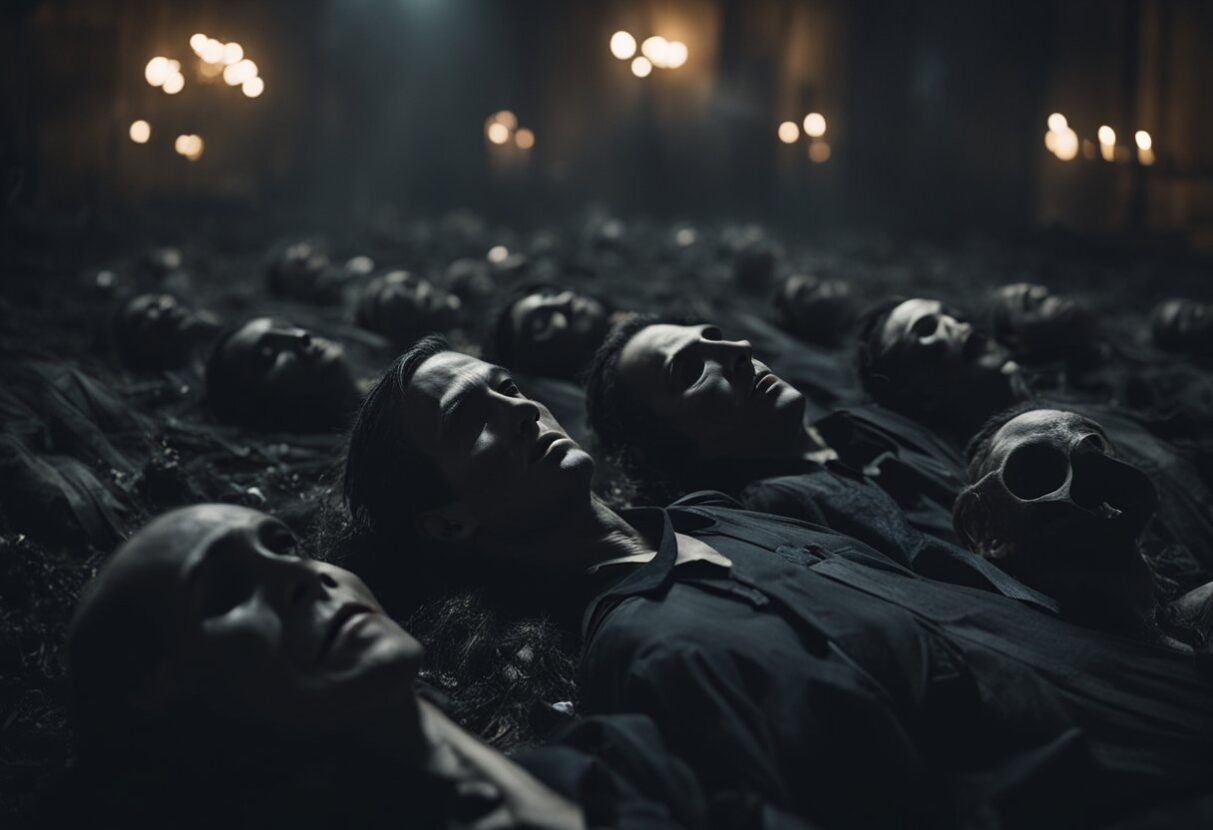
Dreams about dead bodies can evoke a range of emotions, from fear and anxiety to sadness and grief. It is common to feel a sense of negativity when experiencing such dreams, but it is important to remember that dreams are often symbolic and not necessarily reflective of reality.
When you wake up from a dream about dead bodies, take a moment to reflect on your emotional state. Are you feeling overwhelmed or anxious? Are you experiencing a sense of sadness or grief? Acknowledge your feelings and allow yourself to process them in a healthy way.
One way to navigate your emotional response to dreams is to keep a dream journal. Writing down your dreams and emotions can help you to identify any patterns or recurring themes. It can also help you to gain a deeper understanding of your subconscious mind and the messages your dreams are trying to convey.
Another way to navigate your emotions is to seek support from loved ones or a mental health professional. Talking about your dreams and emotions can help you to process your feelings and gain a new perspective on your experiences.
It is important to remember that dreams are not always literal and may be influenced by a variety of factors, including your current emotional state, past experiences, and cultural beliefs. By acknowledging and processing your emotions, you can gain a deeper understanding of yourself and your subconscious mind.
Exploring the Spiritual Dimension of Dreams
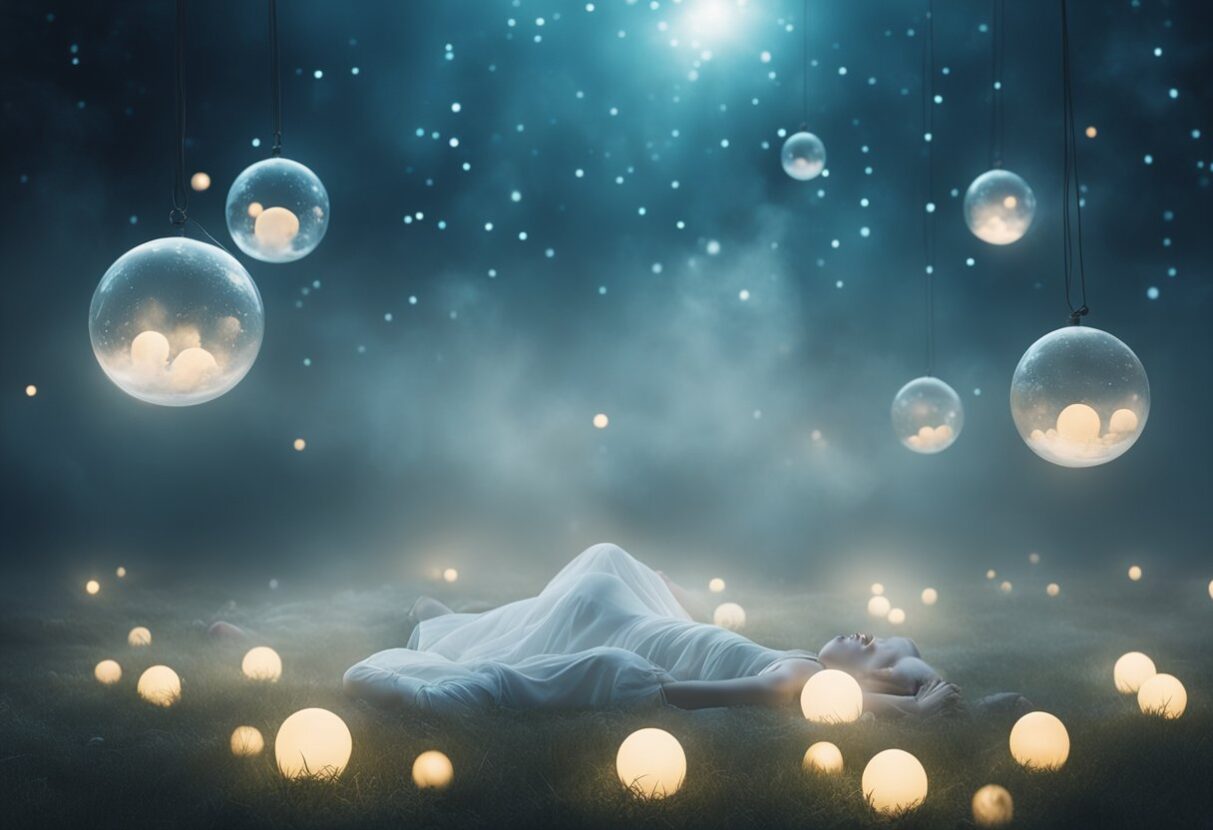
Dreams have always been a source of mystery and intrigue. They have been interpreted in many different ways throughout history, with some cultures believing that they offer a glimpse into the afterlife, while others see them as a reflection of the soul’s journey. Dreams can be seen as a form of spiritual communication, a way for the subconscious to communicate with the conscious mind.
In many spiritual traditions, the dream world is seen as a place where the soul can travel and communicate with other souls. Dreams are believed to offer insights into the spiritual realm and can be used to gain a deeper understanding of oneself, one’s purpose, and the world around us.
One common interpretation of dreams is that they represent the concept of transformation. Dreams can often reflect our subconscious thoughts and fears about change and the unknown. Seeing dead bodies in dreams can be a manifestation of this fear of change, as death is often associated with the end of something and the beginning of something new.
In some cultures, dreams are seen as a way for the soul to communicate with the living. Dreams of dead bodies can be interpreted as messages from the afterlife, offering guidance and wisdom to the dreamer. These dreams can be seen as a way for the deceased to communicate with their loved ones and offer comfort and reassurance.
In conclusion, dreams can offer a window into the spiritual realm, providing insights into our deepest fears, desires, and beliefs. By exploring the symbolism and meaning behind our dreams, we can gain a deeper understanding of ourselves and the world around us.
Techniques for Remembering and Recording Dreams
Dreams can be elusive, and it can be challenging to remember them once you wake up. However, there are several techniques you can use to improve your dream recall and record your dreams.
One of the most effective ways to remember your dreams is to keep a dream journal. A dream journal is a notebook or a digital document where you can record your dreams as soon as you wake up. Keeping a dream journal helps you keep track of your dreams and strengthens your memory of them. When you write down your dreams, you are more likely to remember them in the future.
To improve your dream recall, it is essential to develop a habit of recording your dreams as soon as you wake up. Keep your dream journal next to your bed, so you can write down your dreams as soon as you wake up. If you wait too long, you may forget your dreams entirely.
Another technique for improving your dream recall is to set an intention to remember your dreams before you go to bed. Before you fall asleep, tell yourself that you want to remember your dreams when you wake up. This simple technique can help you remember your dreams more easily.
In addition to keeping a dream journal and setting an intention to remember your dreams, there are other techniques you can use to improve your dream recall. For example, you can try to wake up without an alarm clock, as alarms can be jarring and disrupt your dream recall. You can also try to stay in bed for a few minutes after you wake up, as this can help you remember your dreams more vividly.
In conclusion, improving your dream recall and recording your dreams is an essential part of interpreting and understanding your dreams. By keeping a dream journal, setting an intention to remember your dreams, and using other techniques, you can improve your dream recall and strengthen your memory of your dreams.
Dreams as Predictors of Future Events
Dreams have long been associated with the ability to predict future events. Throughout history, people have looked to their dreams as a source of intuition and foreshadowing. While the scientific community remains divided on the subject, many people still believe that their dreams can provide insight into what the future holds.
One way that dreams can be interpreted as predictors of future events is through the concept of precognition. Precognition is the ability to see events before they happen, and some people believe that their dreams can provide glimpses into the future. For example, you may dream about a specific event or situation, only to have it come true in real life.
Another way that dreams can be interpreted as predictors of future events is through the concept of symbolism. Dreams are often filled with symbolism, and it is believed that these symbols can be interpreted to reveal insights about the future. For example, dreaming about death may symbolize the end of a relationship or a major life change.
It is important to note that not all dreams are predictive in nature. Dreams can be influenced by a variety of factors, including your current state of mind, recent experiences, and even what you ate before bed. However, if you have a dream that feels particularly vivid or intense, it may be worth exploring its potential meaning.
Overall, while dreams may not be a foolproof way to predict the future, they can provide valuable insights into your subconscious mind and the events that may be on the horizon. By paying attention to your dreams and exploring their potential meanings, you may be able to gain a deeper understanding of yourself and the world around you.
Addressing Sleep Disorders and Dream Disturbances
If you are experiencing disturbing dreams or nightmares, it may be a sign of an underlying sleep disorder. Sleep disorders can have a significant impact on your overall sleep quality, leading to restlessness and decreased daytime functioning.
One common sleep disorder that can cause vivid and disturbing dreams is sleep apnea. This condition causes interruptions in breathing during sleep, leading to frequent awakenings and a disrupted sleep cycle. Other sleep disorders, such as restless leg syndrome and narcolepsy, can also contribute to sleep disturbances and vivid dreams.
If you suspect that you may have a sleep disorder, it is important to seek medical attention. Your doctor may recommend a sleep study to diagnose the underlying cause of your symptoms. Treatment options for sleep disorders vary depending on the specific condition but may include lifestyle changes, medication, or the use of a continuous positive airway pressure (CPAP) machine.
In addition to addressing any underlying sleep disorders, there are several steps you can take to improve your sleep quality and reduce the frequency of disturbing dreams. These include:
- Establishing a regular sleep schedule and sticking to it
- Creating a relaxing bedtime routine, such as taking a warm bath or reading a book
- Avoiding caffeine and alcohol before bedtime
- Keeping your bedroom cool, dark, and quiet
- Practicing relaxation techniques, such as deep breathing or meditation
By taking steps to address any underlying sleep disorders and improve your sleep quality, you may be able to reduce the frequency of disturbing dreams and improve your overall well-being.
The Role of Media and Fiction in Shaping Dream Content
The media we consume, including books, movies, TV shows, and video games, can have a significant impact on the content of our dreams. The subconscious mind is highly impressionable, and the images and ideas we encounter throughout the day can seep into our dreams at night. For example, if you watch a horror movie before bed, you may be more likely to have a nightmare that night.
Fictional stories, in particular, can have a profound impact on our dream content. The characters, settings, and themes from our favourite books and movies can manifest in our dreams in unexpected ways. For instance, if you read a novel about a murder mystery, you may dream about trying to solve a crime. Similarly, if you watch a sci-fi movie, you may dream about travelling through space.
Popular culture also plays a role in shaping dream content. Celebrities, politicians, and other public figures can appear in our dreams, often as symbols of power, influence, or success. For example, if you admire a particular musician, you may dream about meeting them or performing on stage with them.
It is worth noting that not all dream content is directly influenced by the media we consume. Dreams can also be influenced by our subconscious thoughts and emotions, as well as our daily experiences. However, media and fiction can provide a rich source of imagery and ideas for our dreams.
In conclusion, the media we consume and the fiction we read can have a significant impact on the content of our dreams. By being mindful of the types of media we consume before bed, we can help to shape the content of our dreams in positive ways.

